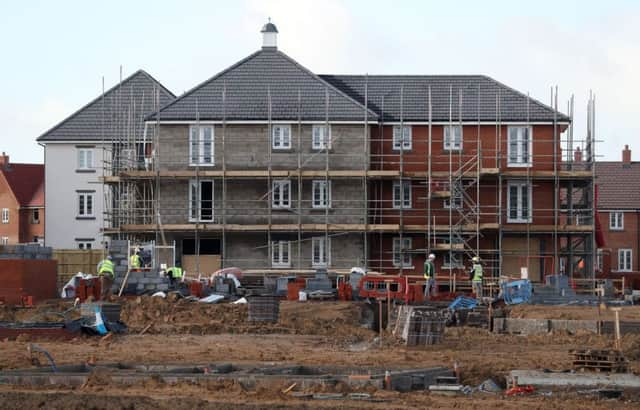Land reform '˜essential' to solving housing shortage in Scotland


It argues the public sector should intervene to improve the operation of the market and increase the supply of land for new housing.
Author Laurie Macfarlane found that between 1995 and 2015 the share of income spent on housing costs in Scotland increased by 50 per cent, from 12 per cent to 18 per cent - the second sharpest increase of any UK region outside London.
Advertisement
Hide AdAdvertisement
Hide AdLevels of homeownership have simultaneously been falling for a decade, while nearly 150,000 people are waiting lists for social housing.
“Without bold action, the pressures of population growth and demographic changes will only add to Scotland’s housing problems,” Macfarlane said in a blog post.
“Policy options to improve the operation of the land market include public land value capture, compulsory sale orders, a new housing land development agency, tax reform, and greater market transparency.
He added: “As well has helping to meet Scotland’s housing needs, intervening to improve the functioning of Scotland’s land market can help generate a number of long-term benefits for Scotland’s economy, including a more productive and dynamic economy; a fairer and more inclusive society; improved living standards and healthier public finances.”
The document is the first in a series commissioned by the Scottish Government-backed organisation on key land reform issues.
“The opinions expressed in the paper are independent of the commission and Laurie has posed a number of important questions to encourage the debate to continue,” said chairman Andrew Thin.
“Land for housing and development is a key priority area of work for us and this paper has helped by not only contributing to the debate but also by helping to identify important knowledge gaps.
“As part of this priority area of work the commission will be looking how the development of land can make the most of it for the people living there and for Scotland. This includes ways to ensure cost-effective land supply for housing, how the increase in the value of land associated with development can be captured and reinvested and the different approaches for addressing the problem of vacant and derelict land.”
